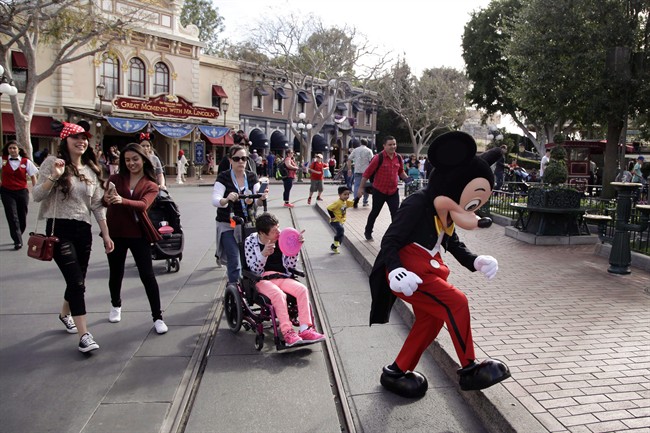TORONTO – Early evidence suggests Toronto’s measles outbreak is not linked to the growing outbreak in the United States that appears to have started at the Disneyland theme parks in California.

Toronto Public Health said Monday that viruses from four of the six confirmed cases in the city have been typed, and they do not match the Disneyland outbreak strain.
The viruses are from a strain known as D4, said Dr. Vinita Dubey, an associated medical officer of health with Toronto Public Health.
The virus responsible for the theme-park outbreak is B3, which was the cause of a very large measles outbreak in the Philippines in 2014. The Philippines recorded more than 21,000 measles cases and 110 deaths last year.
READ MORE: Why is measles so contagious? 5 things you need to know
The U.S. Centers for Disease Control said Monday that it has recorded 121 measles cases so far in 2015, with 114 of them linked to the Disneyland outbreak.
Test results are still pending on the virus type for the two most recent measles cases in Toronto, said Dubey. Those results won’t be in until late this week or early next week, she said.

Get weekly health news
The D4 strain of measles circulates in a number of different parts of the world. So while the results rule out a Disneyland link, they do not tell public health officials where this virus came from.
None of the six people infected in Toronto — nor a case found last week in the Niagara, Ont., region — had travelled outside the country in the weeks before becoming ill.
- Woman dies in ‘suicide pod’ in Switzerland, several people arrested
- Pfizer’s updated COVID-19 vaccine approved by Health Canada
- Canada’s new pandemic preparedness agency aims to speed up vaccine development
- After controversial directive, Quebec now says anglophones have right to English health services
READ MORE: Anti-vaccination movement means preventable diseases making a comeback
Dubey said D4 has circulated in the past in parts of Asia, in Europe and even in Canada.
Scientists at the National Microbiology Laboratory in Winnipeg genotyped the viruses and will search a database maintained by the World Health Organization to look for similar viruses in an effort to narrow down the source. But Dubey acknowledged public health may not be able to pinpoint where the virus came from.
READ MORE: How should health officials reverse an anti-vaxxer movement?
Two of the viruses are identical and the two others are not. But Dubey said the current thinking is that someone brought this measles strain to Toronto and these four cases are all part of a single chain of transmission from that person.
While public health has been working hard to look for links among the cases, to date they have found none.
READ MORE: 6 vaccination myths debunked
“None of them are from the same household. None of them go to the same anything. … They’re not even all from the same area of the city,” Dubey said.
The Toronto cases are two toddlers and four adults, most of whom were not vaccinated. The Niagara region patient is a woman in her early 20s who has not been vaccinated.
That woman, who was hospitalized with complications of measles, had recently travelled to Toronto on two separate occasions and is thought to have contracted the virus during one of those trips.







Comments